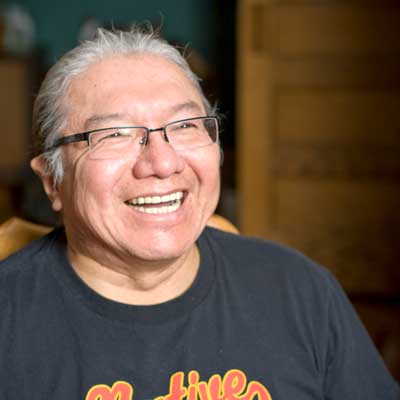EDITOR’S NOTE: From now until June 6, the day before the Ontario election, this newspaper will pose questions––meaningful to the people of Manitoulin Island––to the six candidates in the riding of Algoma-Manitoulin. Their responses will follow each and every week on Page 3 of this newspaper.
Ontario’s farmers currently pay a preferred tax rate for their agricultural land: 25 percent of its value based on a residential tax levy. (On their homes on their farms, they are taxed as everyone else.)
Agricultural land has dramatically increased in re-sale value and is assessed accordingly for tax purposes.
The taxes associated with the 25 percent tax rate have risen dramatically in most cases although the farm gate revenue, earned on farmland, has not increased accordingly so agricultural land taxes have become more of a burden and, in the cases of marginal farm operations, has cut dramatically into profits for the farmer.
If your party forms the Ontario government following the June 7 election what, if any, steps would it take to bring the farm tax burden back into line with the farmer’s earning ability on his/her farm? (Some municipalities have already lowered their assessment to less than the 25 percent threshold but they are in the minority and it would be within the gift of the provincial government to instruct the Municipal Property Assessment Corporation to assess active farm properties in a way that would result in a tax burden less onerous to the farmer, for example.)
Tommy Lee, Northern Ontario Party

As a member of the Northern Ontario Party, as their president, I always look at these issues from a Northern Ontario perspective. In reality there is a huge difference between the average Ontario farm property value to the average farm property value in Northern Ontario. This is just another example of how the big three Toronto focused parties will take the “one size fits all approach” when it comes to forming laws and regulations for all of Ontario when they don’t always work well in our part of the province with a vastly different economy.
In almost all areas of Northern Ontario since around 1990 we’ve seen a steep decline in population. Algoma-Manitoulin has been hit harder than many areas, with a notable exception being Little Current, which has sustained its population but with minimal growth. When a community experiences a decline in population of, let’s say 20 percent, the roads still need to be plowed, the garbage still needs to be picked up, and all other services need to continue as usual. But with less people contributing to the tax base, each person’s share will need to go up, be they farmers, teachers or mill workers.
The Northern Ontario Party believes that a better solution would be to increase the population of Northern Ontario so that the tax burden lessens for everyone. We would do this by introducing our Northern Ontario Manufacturing Plan. This plan would call for at least 50 percent of Northern Ontario’s raw materials to be manufactured to a finished form right here in Northern Ontario, not shipped elsewhere to be manufactured. With this new legislation would come more jobs and greater prosperity for Northern Ontario, including our farmers. So kind of a “one-two punch” One, lessen the tax burden through sharing the load; and two, help make our farmers more prosperous through bettering the local economy.
Kalena Mallon- Ferguson, Libertarian Party

A libertarian government would benefit farmers on so many fronts. Property rights is one of the foundations of the Libertarian Party. The Ontario Libertarian Party will say loud and clear—”back off government!” Here’s how: government agents will have no special privilege under the Ontario Trespass Act. Conservation authorities and any other departments or agencies will have no jurisdiction over privately owned property. What this means, for instance, is the operator of a bar or restaurant can allow smoking on the premises without government interference so long as the property owner is in agreement.
We will end cap and trade which strains all businesses including farming. The NDP has a plan to cut hydro by 30 percent; we feel we can do better. This is why our platform calls for cutting your hydro bill in half by ending the many regulations to forced hydro pricing up. Some of these are repeal the Green Energy Act, eliminate time of use billing, end discriminatory delivery charges crushing rural residents and remove all subsidized power from the grid
One of the best things we can do to assist farmers is to end corporate welfare or handouts. This gives all farmers a level playing field. We need healthy competition to have better pricing and products.
Charles Fox, Liberal Party

The Ontario Liberal government is helping boost the competitiveness and economic growth of Ontario’s agri-food sector while keeping and creating good jobs here at home.
The Ontario Liberal Party has worked hard to ensure that Ontario’s property taxation system is founded on the principle of fair and equitable taxation for all taxpayers, including farmers. Leading up to the 2016 assessment year, the Municipal Property Assessment Corporation (MPAC) worked to improve the accuracy and consistency in how it values farm properties, and to make assessment notices clearer for property owners. Assessment increases are phased in over four years to give farm owners greater stability and predictability; assessment decreases come into effect immediately.
As the governing party, we heard the concerns raised by family-owned farm businesses.
Through our 2017 Fall Economic Statement, the Ontario Liberal government is investing an additional $500 million for small businesses, which include many family farmers, to lower costs, take advantage of new opportunities, and enhance productivity and innovation. These initiatives include:
- The Ontario Liberal government is also following through on its 2017 Budget commitment to provide municipalities with flexibility to reduce property tax rates for small-scale value-added and commercial activities on farms. These types of activities on farms were taxed at industrial or commercial rates. As of 2018, the Ontario Liberal government provided municipalities with the flexibility to tax the first $50,000 of assessed value of qualifying value-added and commercial activities on farms at a rate that is 75 percent lower than the commercial or industrial tax rate that would otherwise apply. In order to support a level playing field with larger processors and off-farm businesses, this treatment will be limited to on-farm processing and commercial facilities that are assessed below $1 million.
- New incentives to hire and retain youth – $124 million over 3 years in supports for youth aged 15 to 29 years.
- Cutting the small business tax rate to 3.5 percent (from 4.5), effective January 1, 2018. This will represent a 22 percent cut.
- Financial support for small and medium‐sized fruit and vegetable farming businesses —$60 million in support for producers of locally grown fruits and vegetables, and other edible horticultural products.
- Supporting healthy and vibrant downtowns and main streets that benefit small business through a $40-million enhancement fund to strengthen communities’ planning and implementation activities.
- Investing $8 million in a pilot program to help small businesses access financing by enabling partnerships between FinTech firms and institutional lenders.
- A “one‐window” service to make it easier for small businesses to interact with government.
- Initiatives to provide better access to government procurement opportunities, designating 33 percent of its procurement spending to small and medium‐sized businesses by 2020.
- Making government inspections more efficient for businesses with good compliance records and providing businesses with more flexibility to meet government regulatory requirements.
We value the input of farmers and will continue to work with them to help them succeed.
Michael Mantha, New Democratic Party

Farmers have always been visionary and forward-thinking. In one of the most technologically demanding industries in the world, Ontario’s growers and producers are building the future–but life in rural Ontario has never been easy–and today under the Wynne Liberals, it’s actually getting harder.
Andrea Horwath and the Ontario NDP have committed to making life better for farming families and rural Ontarians.
Land speculation and current-value assessments have increased farm property taxes at a much faster rate than farm incomes have increased. This puts farms and Ontario’s food security at risk. An Ontario NDP government will review MPAC and the property tax assessment system to make sure it is fair for farmers and other property owners. We will also implement a Food and Water Strategy to strengthen Ontario’s food security and protect farms from unchecked land speculation.
For too long Kathleen Wynne has pushed policies that squeeze out family farms and make operating more expensive for everyone. What’s worse is Doug Ford’s plan will cut billions in services and programs, which means programs that support agriculture, agri-science and rural areas would be on the chopping block of a Ford government.
Andrea Horwath and the NDP will raise the cap on the Risk Management Program and will defend supply management for Ontario’s Farmers.
To make life more affordable for people in rural and Northern communities, like in Algoma-Manitoulin, the NDP will get rid of unfair rural hydro delivery costs that are the highest in Canada, while reducing hydro costs by 30 percent.
An NDP government will stop and reverse the cuts and closures, while investing in rural transportation, healthcare, schools and infrastructure—ensuring cohesive rural communities and a strong rural economy that all Ontarians can benefit from.
Furthermore, we will create a 10-year $1 billion fund to bring broadband service to rural and Northern Ontario and invest $100 million in natural gas expansion to rural Ontario to reduce dependence on high-carbon diesel and heating oil.
We will also start working with the Ministries of Agriculture and International Trade to ensure farmers, processors and agricultural industries can succeed and grow at a time of immense trade instability.
New Democrats will protect Ontario’s Production Insurance Program, and work with farmers to keep it fully funded and simple to access, so it offers them real protection.
We will work with farmers and municipal leaders to protect Ontario’s farmland from encroachment by land speculators. We will also work with farming groups to ensure young farmers can get their foot in the door, as well as expanding the government’s definition of farming and food production to include new definitions such as urban farming.
We know farming policy is not one-size-fits-all. That’s why an NDP government will work with all farmers as partners. That’s the Change for the Better we need.
Justin Tilson, Green Party

The Green Party of Ontario does not currently have a specific policy in place to address the issue of excessively burdensome farm taxes. I provide what I would advocate for. I recently returned from a week travelling through the Greenbelt in southern Ontario. It is filled with McMansions and multi-million dollar “farms,” huge acreages with white picket fences and a few horses.
I’m in favour or lowering taxes on famers who are actually farming, not those who have created the upward pressure on farmland prices. These are significant numbers of Ontarians who have abundant financial resources living in the agriculturally rich areas around the province. I’m in favour of a revenue neutral solution that lowers farmers’ tax burden by increasing taxes on estate and mansion owners in rural areas. Some other solutions are worth considering. Vancouver was largely forced to implement foreign buyer and speculative home taxes. Real estate speculators made the cost of housing, and the resulting taxes unaffordable to all but the wealthy. The GPO is in favour of using these tools to protect affordable housing and farmland.
Other areas that differentiate the Green Party of Ontario on farming and agriculture are a willingness to protect and expand the Greenbelt, reduce the regulatory burden on small abattoirs, set local purchase targets for the MUSH sector (municipalities, colleges, universities, school boards and hospitals), implement strong protections against animal cruelty, and a phase out battery farming and intensive animal husbandry.
A policy I’m particularly enthused to advocate for is paying farmers for the ecological services they provide. This includes protecting water and storing carbon. Many don’t know it but our farmers are poised to be one the biggest allies in slowing and mitigating climate change. By shifting farming practices to focus on building carbon in the soil, farms will increase their soil fertility as well as water and nutrient holding capacity, all of which help crops tolerate swings in weather. These changes provide a form of self-insurance.
The Greens also favour a sensible policy to start pricing carbon dioxide pollution while giving farmers a chance to get paid for sequestering it. This change will push our economy to become more efficient, do our part to slow climate change and support farmers to keep farming.
Finally, to protect everyone, including farmers, the Green Party of Ontario is a staunch proponent of a Basic Income Guarantee. A Basic Income Guarantee is the most efficient way to eliminate poverty while ensuring no one slips through the cracks.
Jib Turner, Progressive Conservative Party

Farmers are the backbone of Algoma-Manitoulin economy. Right now, under Wynne’s regime, farmers face endless red tape with a ministry full of bureaucrats telling them what to do. That is not right.
We need to do more to help the farmers of Algoma-Manitoulin. This means we will represent our farmers by farmers.
Unlike Wynne, who appointed herself Minister of Agriculture, Doug Ford has promised our Minister of Agriculture would be a farmer. With this appointment, we will listen to farmers because we know they are much smarter than anyone else when it comes to agriculture. Ontario PCs believe in grassroots and there is no one more grassroots than farmers.
In contrast to the NDP and Liberals, we also believe in accountable governance and not unfairly taxing anyone or any farmer. If we take office, we will do a line by line audit to examine where we can reduce spending and thus taxes.
Know when you cast your ballot that the NDP and Liberals would only make farming more expensive. We are the only party who is saying ‘no’ to the disastrous carbon tax the other parties will just tack on for farmers to absorb. In addition, farms will only benefit from our cleaning of the Hydro One mess by reducing hydro costs–which will continue to skyrocket under Wynne’s Liberals or the NDP.
Farmers have always been the backbone of our economy. While Wynne appoints herself, Doug Ford and the Ontario PCs are committed to making sure a farmer is our Minister of Agriculture.
For Algoma-Manitoulin farmers who want to stay competitive, there is only one clear choice to vote this time. That is for Jib Turner and the Ontario PC.




